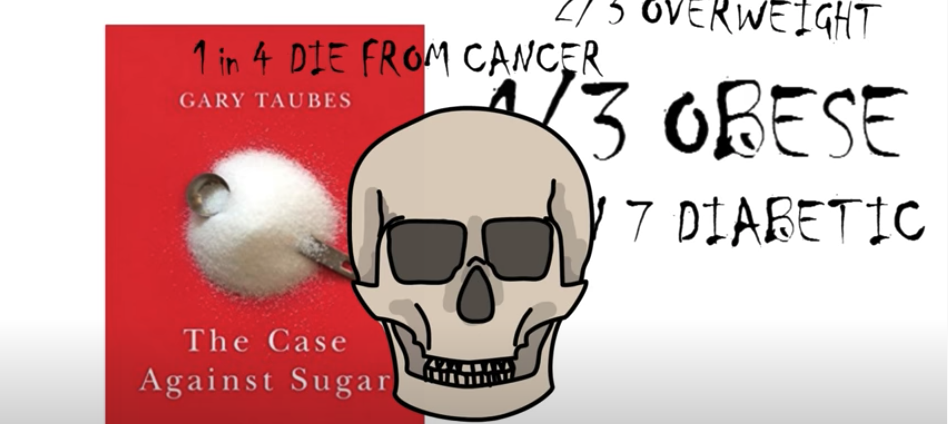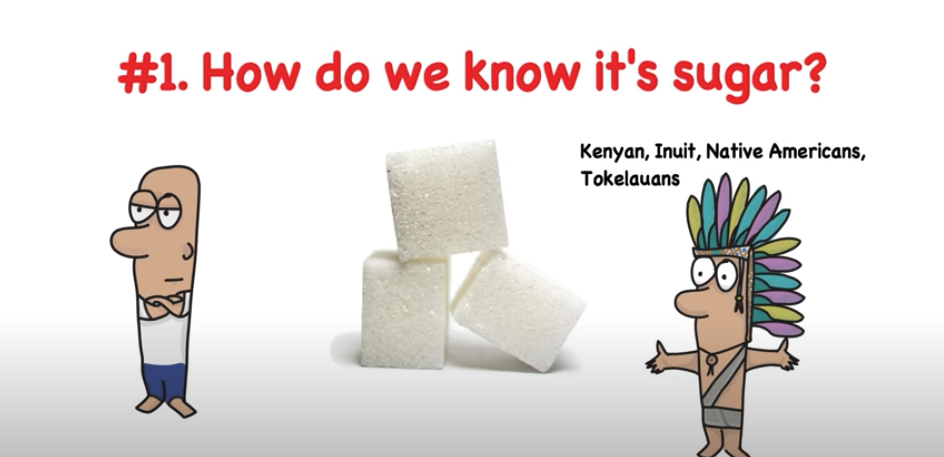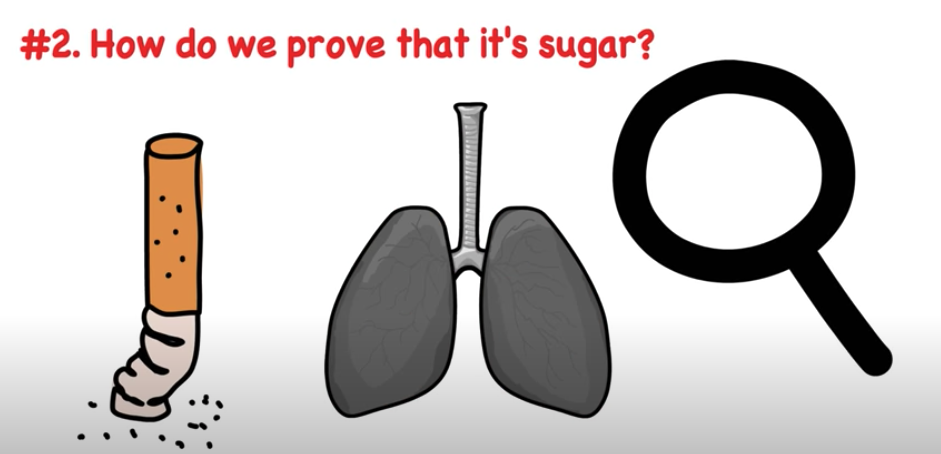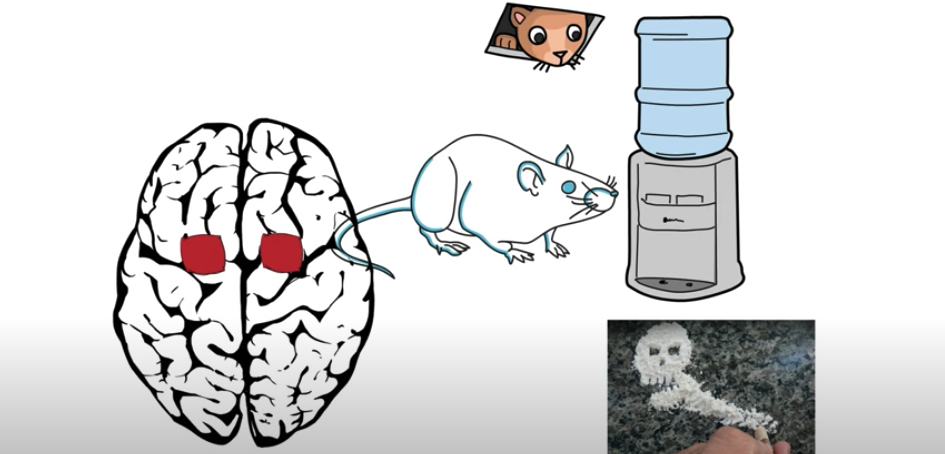At Sunflower Counseling we like to read. Our Missoula therapists are always looking for ways to be more healthy and so a lot of our books that we choose are in this vein.

“The Case against Sugar” by Gary Taubes is like a murder mystery. And sugar – that is, sucrose and high fructose corn syrup, are the prime suspects.
With this said, a third of all adults are obese, two-thirds are overweight, almost one in seven is diabetic, that’s 30 percent, and one in four to five will die of cancer.
We’re dealing with an epidemic.
What is going on with these diseases?
“Diabetes has now killed more people in the twentieth century than all wars combined,” said Kelly West in 1978!
That’s right – way back in 1978.
So let’s look a the top 3 Questions in this book:
#1. How do we know it’s sugar that is at the root of many of these physical and mental ills?

Taubes asks: What happens when you introduce sugar into a population that doesn’t consume sugar and then you compare it to one who does?
For example, populations that were introduced to sugar that we can compare to our? Take the Kenyan, Inuit, Native Americans, the Tokelauans (Toke-Lawns) and European populations before 1912. This is a perfect example to see what happened to them.
After we introduced sugar to these populations, we see big spikes of diabetes. And it’s all downhill from here. We suddenly start seeing medical ills. Like Alzheimer’s – which as you know is diabetes of the brain. And cancer which feeds off of sugar. Cancer’s food is sugar. It’s always good to be reminded of this stuff.
It’s often rich societies, by the way, who can afford the sugar. The average American consumed 67 pounds of sucrose by last estimates in 2014.
That’s probably a low number. Can you imagine what that much sugar does to the body, just that alone? 67 pounds.
So why are we writing this off as a species?
Because it’s consumed slowly. We’re talking about accumulation over time.
#2. How do we prove that it’s sugar?

It’s not easy to prove this case. It’s not like cigarettes where researchers could compare smokers with nonsmokers and look for the difference in incidence of a single disease – like lung cancer and emphysema and see a direct correlation.
“Oh the lungs are black. They must be a smoker.”
There are no black lungs with sugar.
#3. Is sugar a drug?
Likewise with crack, heroin, cocaine – all these drugs have instantaneous effects. But sugar is weird because its effects are cumulative. But if it all ends the same, if it kills you in 20 years or in 2, isn’t a poison still a poison?
We like to pass sugar off as harmless.
We give it to kids, and they get so excited that they might even cry out in ecstasy.
“Who wants a cookie?”
“Who wants to go to Dairy Queen?”
It’s intoxicating.
They know what’s up when you say popsicle in the fridge, anyone?
Same with rats. Not to compare rats to kids but – if you let a rat choose between cocaine and sugar water they’ll actually choose the sugar water.

That’s because it’s affecting the limbic system – specifically, the nucleus accumbens. These areas of the brain control reward and motivation. It’s all about dopamine here, baby. And sugar disrupts dopamine levels.
Sugar’s Weird History
Until recently, nutritionists studying sugar did so from the natural perspective of viewing sugar as a nutrient – a carb – and nothing more. Which did bode well for the sugar industry.
And there are big corporations with massive campaign strategies designed to tell us that sugar is harmless.
But now
But now we know that the more we use sugar, the less dopamine we produce naturally in the brain. This means we lose dopamine receptors. Thus, we need more of the drug to get the same pleasure response.
The question is, does sugar cross that line, where it’s an addictive drug?
We can love sex, for instance, and find it intensely pleasurable without being sex addicts. We can go to McDonald’s and order a sundae without having to have one every night.
We can buy a new pair of shoes which will stimulate dopamine but that doesn’t mean we need a hundred pairs of shoes.
My wife is great but she has so many shoes! I can’t even get in the closet.

So she bought one pair, and apparently that wasn’t enough.
And me, I have an unhealthy addiction to virtual reality. I’ve bought so many headsets.
But these aren’t going to kill you.
#4. How have companies incorporated sugar?
Kellog’s first corn-flakes were sugar free.
But way back when Kellogg, yeah Mr. Kellog put his younger brother in charge of development.
Sure blame it on the brother!
So the story goes – while Mr. Kellogg was away in Europe in 1902, the younger brother added sugars. He just snuck’em in there.
Mr. Kellogg was outraged when he returned home because he felt that sugar was unhealthy! He argued vehemently against using it. But consumers disagreed.
Do you believe this story?
#5. Are we all addicted then?
And so the kids become accustomed to this, literally hardwired to love sugar.
I mean we are literally hardwired before we’re even born, from our moms in the very womb who are probably addicted as well. The mom’s are downing tons of sugar every day.
And so our populations react in the same way that kids do. In other words, we can’t get enough.
All our holidays are planned around sugar. Of course I’m going to have a cake at my birthday! And X-Mas! And I’ll even associate my wife to sugar that’s how much I love it.
I’ll call her “cupcake”, “sweetie pie”, “sweet cakes”, “honey”, “honey pie” or even “sugar.”

And sugar actually was revered even ten thousand years ago as evidenced in New Guinea, wherein their creation myths have the human race emerging from the sexual congress of the first man and a stalk of sugarcane.
It reminds me of Eve eating the apple. But in her defense it wasn’t a caramel apple.
#6. Whose fault is it here?
Members of the jury, I ask you, is it necessary to posit multiple causes – to explain the presence of these chronic diseases, or will one suffice? Sugar, for example. It was here all along, it was right in front of us.
Like the butler. So it’s all our fault. We have to take responsibility and know we’re being poisoned.
Just remember – the simplest hypothesis – is always the most likely.
Make sure you read “The Case for Sugar” by Gary Taubes. It just might save your life.
